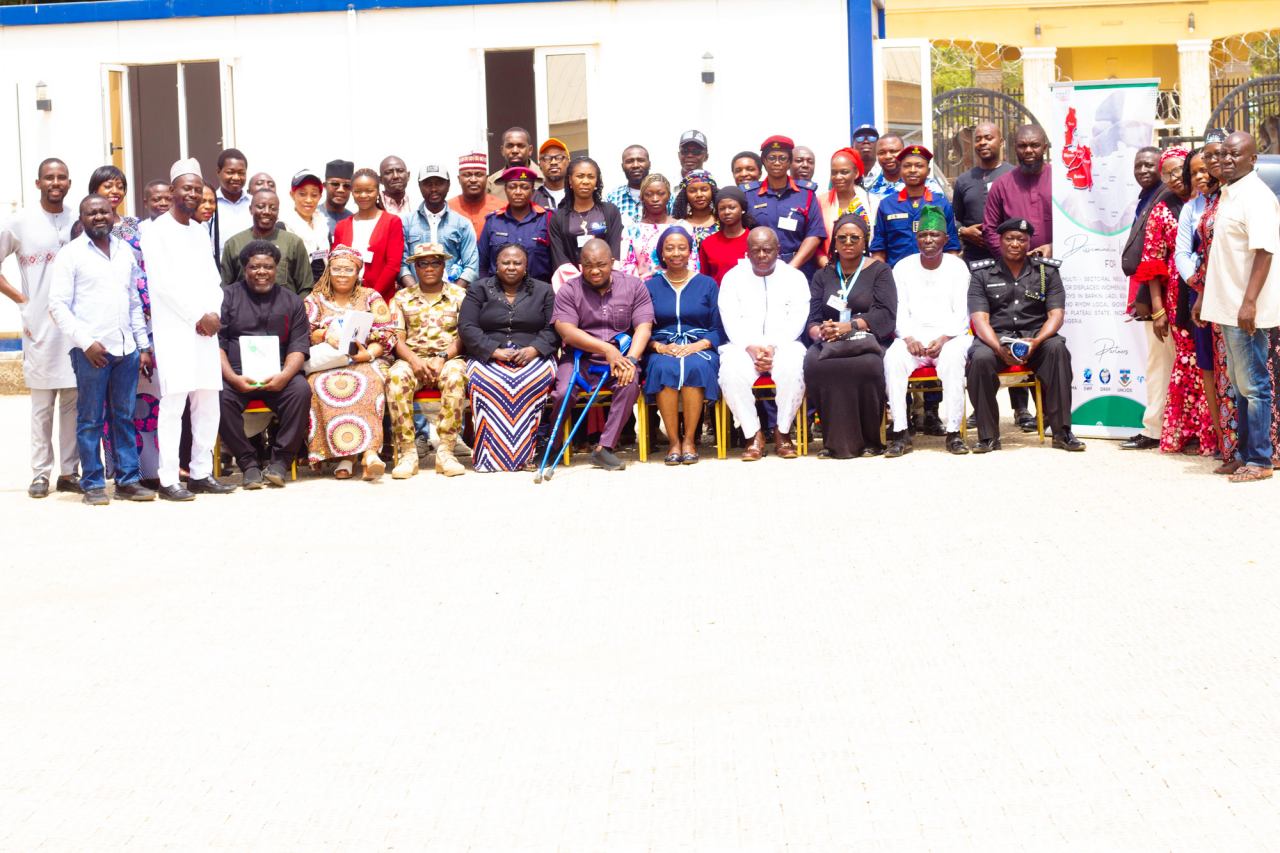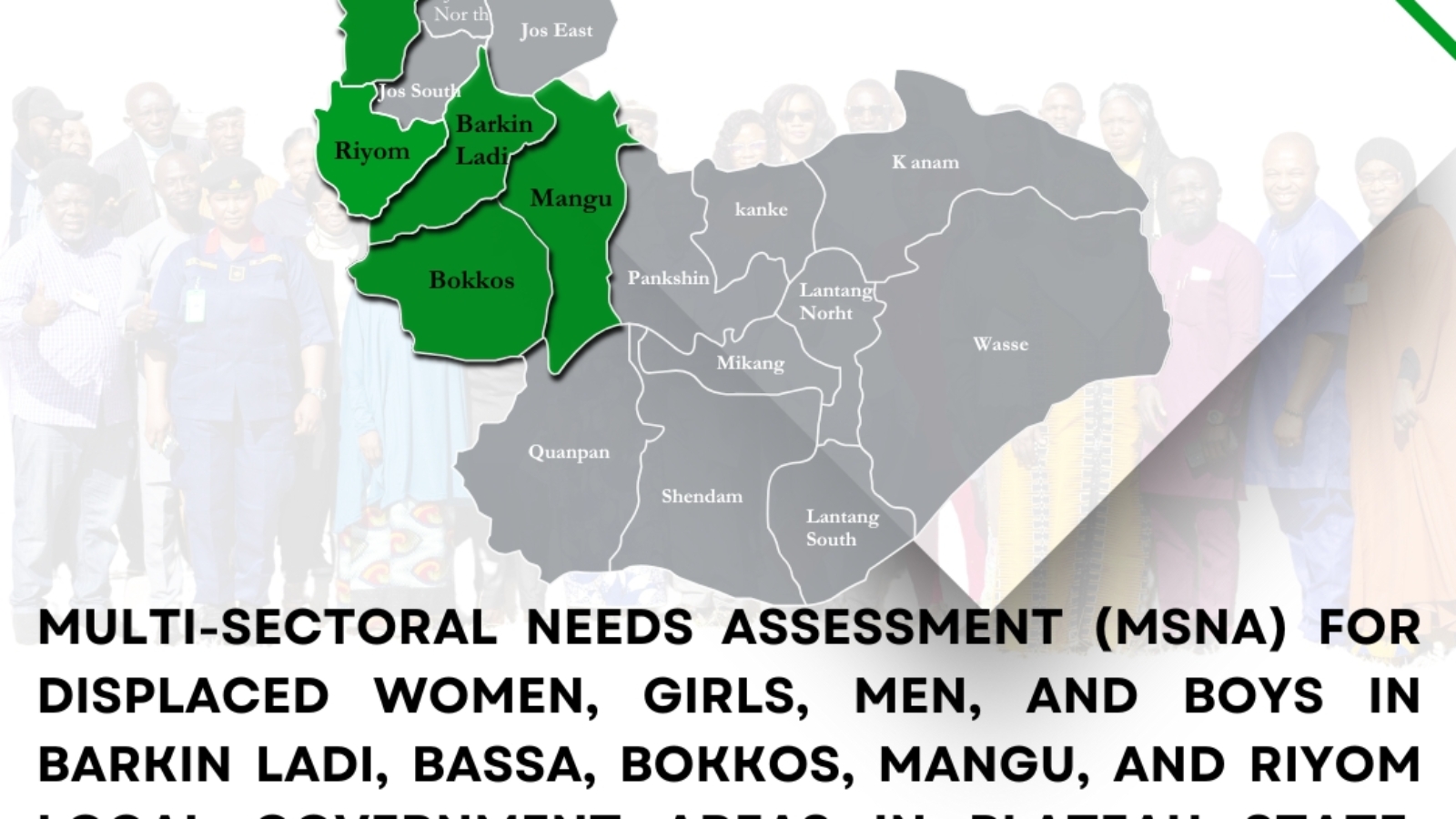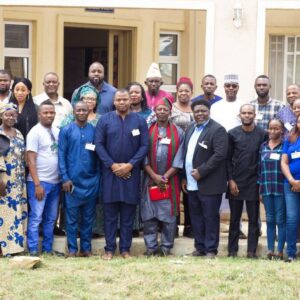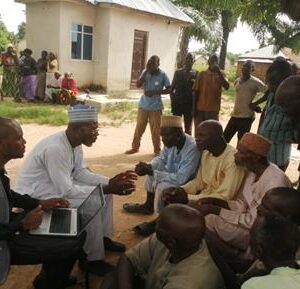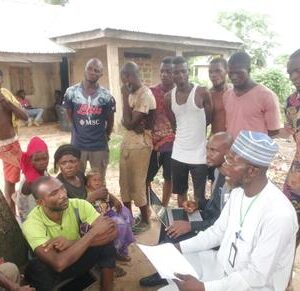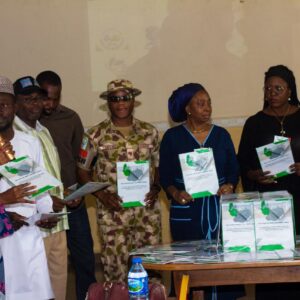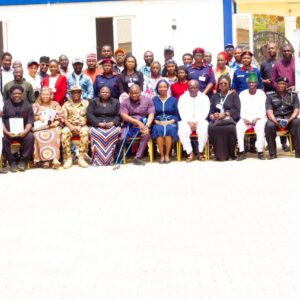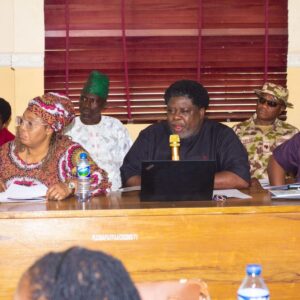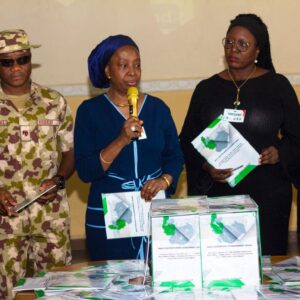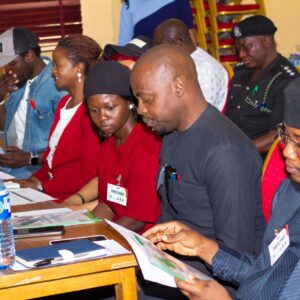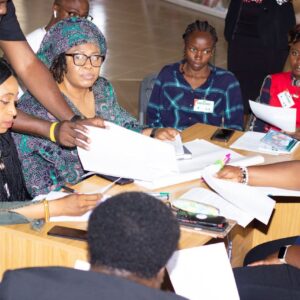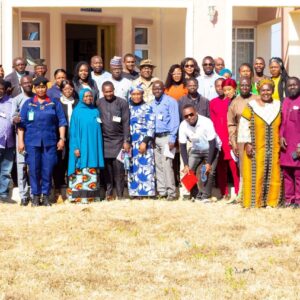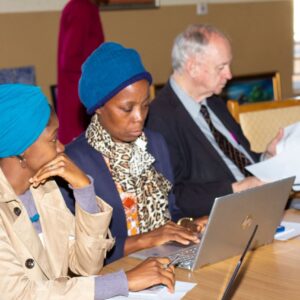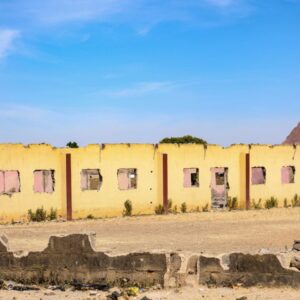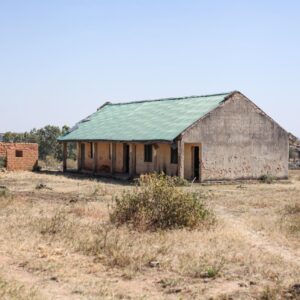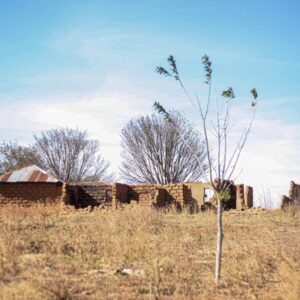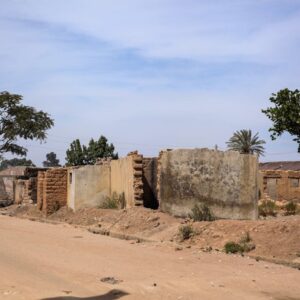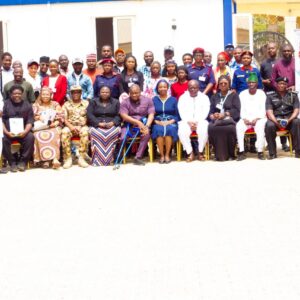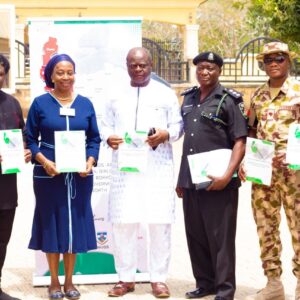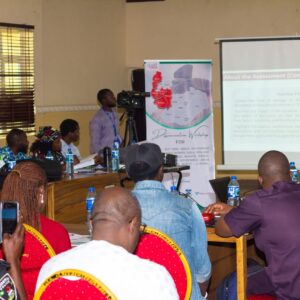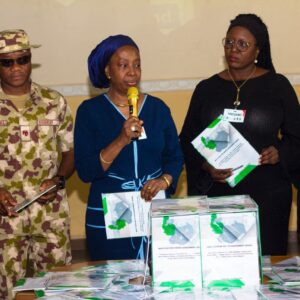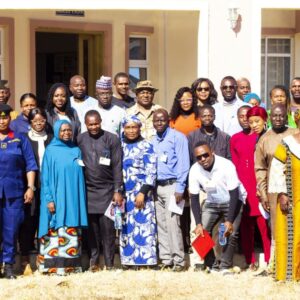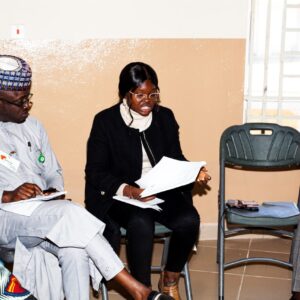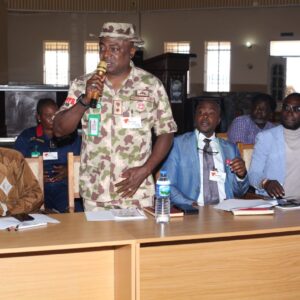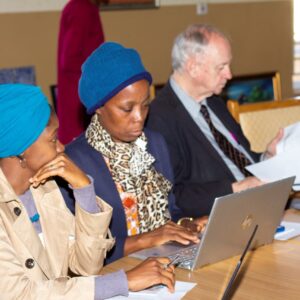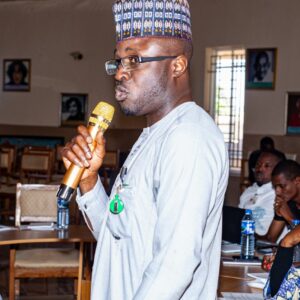Crest Research and Development Institute (CRADI) conducted a two-phase post-conflict assessment in four conflict-affected Local Government Areas (LGAs) in Plateau State Bassa, Bokkos, Riyom, and Mangu between April and June 2025. Phase I focused on Riyom, Bokkos, and Bassa LGAs, while Phase II extended the assessment to include Mangu LGA. The assessment aimed to understand the immediate humanitarian needs of affected populations, the scale and impact of the violence, and inform appropriate response strategies by humanitarian and development actors. This report presents a synthesis of the findings across all four LGAs, covering key sectors such as security, displacement, food security, health, water, sanitation and hygiene (WASH), shelter, protection, and education.
Study Design and Methodology.
The post-conflict needs assessment was designed as a mixed-method, rapid assessment conducted in two phases across four conflict-affected Local Government Areas (LGAs) of Plateau State. Riyom, Bokkos, Bassa, and Mangu. Phase I was conducted between April and May 2025, covering Riyom, Bokkos, and Bassa LGAs, while Phase II took place in June 2025, expanding coverage to include Mangu LGA. The primary objective was to identify the scale and nature of displacement, assess urgent humanitarian needs, and guide evidence-based response planning by CRADI and its partners.
The assessment applied a conflict-sensitive, community-based approach, incorporating both qualitative and quantitative techniques to ensure a nuanced understanding of the local context. It adhered to the principles of do-no-harm, inclusivity, and participatory engagement, engaging local stakeholders and affected populations throughout the process.
Data Collection
Tools and Instruments
Two sets of tools were used:
- Household Survey Tool (quantitative): capturing demographic data, displacement status, access to services, and priority needs.
- Key Informant Interview Guide (qualitative): used with local leaders, women’s leaders, youth representatives, health workers, and LGA officials.
A total of 321 household surveys (89.2%) and 39 key informant interviews (10.8%) were conducted
Data Analysis
Quantitative data from household surveys were cleaned and analyzed using Microsoft Excel and Kobo Toolbox dashboards to generate descriptive statistics, disaggregated by LGA, age, sex, disability status, and displacement status. Key variables included food security, health, WASH, shelter, protection, education, and security access.
Qualitative data from interviews were coded and thematically analyzed to complement quantitative findings and provide deeper insights into community priorities, gaps, and coping mechanisms. Themes included:
- Nature and pattern of attacks
- Service disruptions
- Accessibility constraints
- Community-based protection strategies
Reporting and Validation
Draft findings were compiled into LGA-specific summaries and cross-validated with community representatives and local government officials to ensure accuracy and contextual validity. A consolidated report was developed to highlight cross-cutting trends and comparative analysis across the four LGAs.
Final outputs included:
- A summary of priority needs per LGA
- A vulnerability and accessibility matrix
- Recommendations for immediate and medium-term response planning
The report serves as an evidence base to inform coordinated, multisectoral interventions, helping partners to tailor their response strategies based on verified, community-driven insights.
Security and Displacement Context
The security situation in Bassa LGA, particularly within the Irigwe Chiefdom, remains tense and unstable, with persistent attacks disrupting daily life and instilling fear across the population. Sustained violence over several days has led to numerous displacements and significantly impacted farming activities. Residents now return earlier from their fields to reduce exposure to attacks, indicating the direct link between insecurity and livelihood disruption.
Riyom LGA has experienced a relative period of calm following recent incidents, though the lingering effects of displacement are evident. Some residents have returned to their communities, while others remain in host communities or IDP camps. The partial return of displaced populations suggests a cautious optimism, but long-term resettlement will require continuous protection and support.
In Bokkos LGA, while some calm has been restored, intermittent attacks continue to affect communities, maintaining a climate of fear and displacement. The unpredictability of violence has disrupted agricultural activities, destroyed homes, and strained coping mechanisms among vulnerable groups.
Mangu LGA currently maintains a fragile calm, with no major incidents reported in recent weeks. However, fear of renewed attacks lingers, prompting some temporary relocations. Farming has cautiously resumed, yet communities remain in urgent need of food, clothing, and shelter due to previous losses and ongoing recovery challenges.
Incident Summary
Between April and June 2025, violent attacks were reported across the assessed LGAs. In Bassa LGA, several wards including Tahu, Te’egbe, and Gabia witnessed deadly ambushes resulting in multiple fatalities and injuries. Victims were often attacked while returning from farms or traveling between communities, with incidents concentrated in remote villages. Similarly, Riyom LGA experienced targeted killings of individuals en route to or from agricultural activities and markets, further exacerbating fear among residents.
In Bokkos LGA, coordinated assaults by armed groups in Mushere villages and Daffo Ward resulted in multiple deaths, arson, and widespread displacement. Mangu LGA reported killings, destruction of property, and attacks on farmlands across various communities such as Aloghom, Derkong, and Chi-chim. The sequence of attacks has contributed to cumulative trauma and significant disruption of community cohesion.
Priority Needs of Affected Populations
Analysis of the assessment findings highlights that priority needs vary by LGA but share common themes of acute vulnerability. In Bassa LGA, security was cited as the most pressing concern (66.7%), followed by health (25%) and food/nutrition (8.3%). These needs reflect persistent violence, lack of healthcare infrastructure, and growing food insecurity due to restricted farming activities.
In Bokkos, food and nutrition were identified as the top priority (40%), with equal attention to protection, security, and shelter (20% each). The attacks have led to poor harvests and damage to key crops such as potatoes, heightening food shortages. Shelter needs are critical due to widespread destruction of homes.
Riyom LGA prioritized food/nutrition (46.2%), protection (38.5%), and health (15.4%), corresponding with the impacts of displacement, inadequate food stocks, and ongoing insecurity. Mangu LGA showed an overwhelming need for food and nutrition support (88.9%), with health (11.1%) also flagged due to limited access to healthcare amidst high malnutrition rates.
Sectoral Overview
Food Security: Food insecurity is widespread across all LGAs. In Bassa, destruction of barns, farmlands, and stored crops has rendered households dependent on humanitarian food aid. Bokkos and Riyom report severe shortages in food quantity and variety, leading to malnutrition, especially among women and children. In Mangu, the situation is most severe, with farming activities halted or limited due to security threats and environmental stress, amplifying hunger levels.
Health and Nutrition: Access to healthcare remains a major challenge in Bassa and Mangu LGAs. Communities often travel long distances to access services, while others receive minimal home-based care. Malnutrition is prevalent across Bokkos, Riyom, and Mangu, driven by unbalanced diets and inadequate medical services. The health infrastructure is overstretched and requires urgent investment in personnel, supplies, and facilities.
WASH (Water, Sanitation and Hygiene): The assessment revealed significant WASH-related challenges. Bassa relies on a single borehole for water, while IDP camps in Bokkos and Riyom struggle with inadequate water, poor sanitation, and limited access to hygiene materials. This raises concerns about disease outbreaks, particularly in overcrowded areas.
Protection: While most communities did not report active gender-based violence (GBV), the overall protection environment remains fragile. Vulnerable groups, especially women and children, face increased risks due to displacement and lack of privacy and safety in temporary shelters. Insecurity has also disrupted social protection systems and community resilience.
Shelter: Shelter needs are acute in Bokkos and Mangu LGAs, where homes were destroyed in attacks. Displaced persons are living in overcrowded or makeshift shelters, often without basic amenities. This has compounded psychological distress and exposure to the elements.
Education: Education remains a secondary priority for most affected areas, yet the disruption of learning has long-term implications. In Bassa, residents expressed a desire to reestablish schools and learning centers for children. In Riyom and Mangu, educational services have yet to fully resume, due to both displacement and insecurity.
Summary of Key Findings from the Post-Conflict Assessment
The post-conflict assessment conducted across Riyom, Bokkos, Bassa, and Mangu Local Government Areas (LGAs) of Plateau State reveals a complex humanitarian landscape marked by persistent insecurity, widespread displacement, and critical needs across multiple sectors. The evaluation, which combined household surveys and key informant interviews, highlights the following core findings:
- Insecurity and Displacement: Continued attacks, particularly in Bassa and Mangu, have severely disrupted community life. Over half of respondents (53.3%) reported the absence of formal security presence, with displacement patterns varying some households remain in their communities while others have relocated to nearby towns or IDP camps. Fear remains high, even in areas of relative calm.
- Critical Gaps in Basic Services: Access to healthcare, electricity, and communication services remains significantly limited, especially in Bokkos, Mangu, and Bassa LGAs. Only 32.8% of respondents reported access to adequate health services prior to the conflict. Network communication and electricity infrastructure are either weak or non-existent in many affected communities, compounding the difficulty of emergency response and recovery.
- Food Insecurity and Livelihood Disruption: Conflict has devastated farming activities and food supply chains. In Bassa,66.7% of respondents identified security as the top need, followed by health (25%) and food (8.3%). In Mangu, food and nutrition needs dominate (88.9%), indicating critical food insecurity due to displacement, farmland destruction, and looting.
- Demographic Vulnerability: The assessment found that 52.6% of respondents were women, and nearly 20% identified as persons with disabilities (PWDs). The majority of deaths (over 80%) occurred among males aged 18–64, often due to direct attacks while farming or traveling. Injuries and missing persons were also disproportionately male.
- Residential Damage and Asset Loss: A total of 1,143 residential buildings were reported damaged, with 953 fully destroyed. Additionally, 49 livestock losses were documented. While schools, health facilities, and religious buildings were not widely reported as damaged, their functionality remains questionable due to community displacement.
- Community Accessibility and Logistics: Most affected areas (88.9%) were accessible at the time of the assessment, primarily by land (76.3%). However, Mangu and Bokkos presented significant access and communication constraints due to poor infrastructure and insecurity.
- Urgent Multisectoral Needs: The most frequently cited priority needs across LGAs included food and nutrition, security, shelter, health services, WASH (water, sanitation, and hygiene), and education. The variation in need severity across locations underscores the importance of localized, context-sensitive interventions.
Conclusion
The rapid needs assessment across Bassa, Bokkos, Riyom, and Mangu LGAs paints a sobering picture of humanitarian distress, driven by persistent violence, displacement, and loss of livelihoods. Urgent, multi-sectoral intervention is needed to address the priority needs identified, particularly in food security, health, shelter, protection, and WASH. Community-based approaches—supported by government agencies, humanitarian partners, and civil society—must be scaled to restore dignity, rebuild livelihoods, and foster long-term peace and resilience. CRADI calls for coordinated and sustained response efforts to ensure the immediate relief and early recovery of affected populations in Plateau State.
 Lantana Abdullahi from the Women for Positive Peacebuilding Initiative posed a question that challenged everyone present to think more deeply. She asked whether it is truly enough to include women, or whether we must ask which women are included and whether they have real influence over decisions.
Lantana Abdullahi from the Women for Positive Peacebuilding Initiative posed a question that challenged everyone present to think more deeply. She asked whether it is truly enough to include women, or whether we must ask which women are included and whether they have real influence over decisions. The most important takeaway from the event is that there is no universal blueprint for peace. What works in Kaduna may not work in Plateau. The common thread is not a specific intervention, but an approach rooted in local knowledge, evidence-based adaptation, and institutions that enable communities rather than dominate them. Sustainable peace emerges when solutions are designed with communities, not imposed on them.
The most important takeaway from the event is that there is no universal blueprint for peace. What works in Kaduna may not work in Plateau. The common thread is not a specific intervention, but an approach rooted in local knowledge, evidence-based adaptation, and institutions that enable communities rather than dominate them. Sustainable peace emerges when solutions are designed with communities, not imposed on them.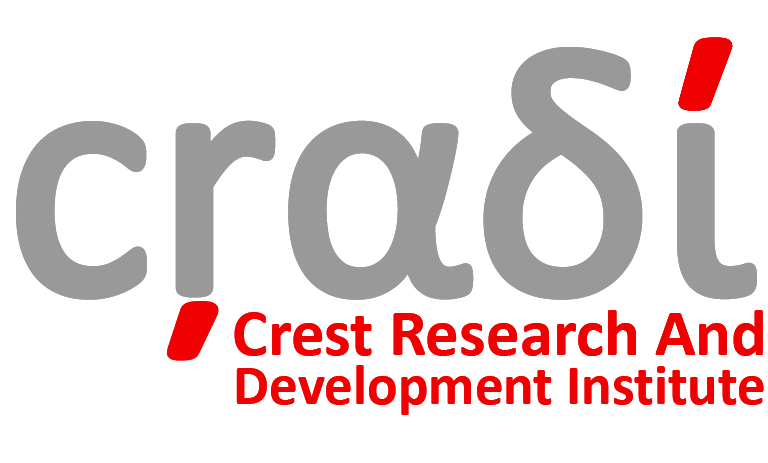

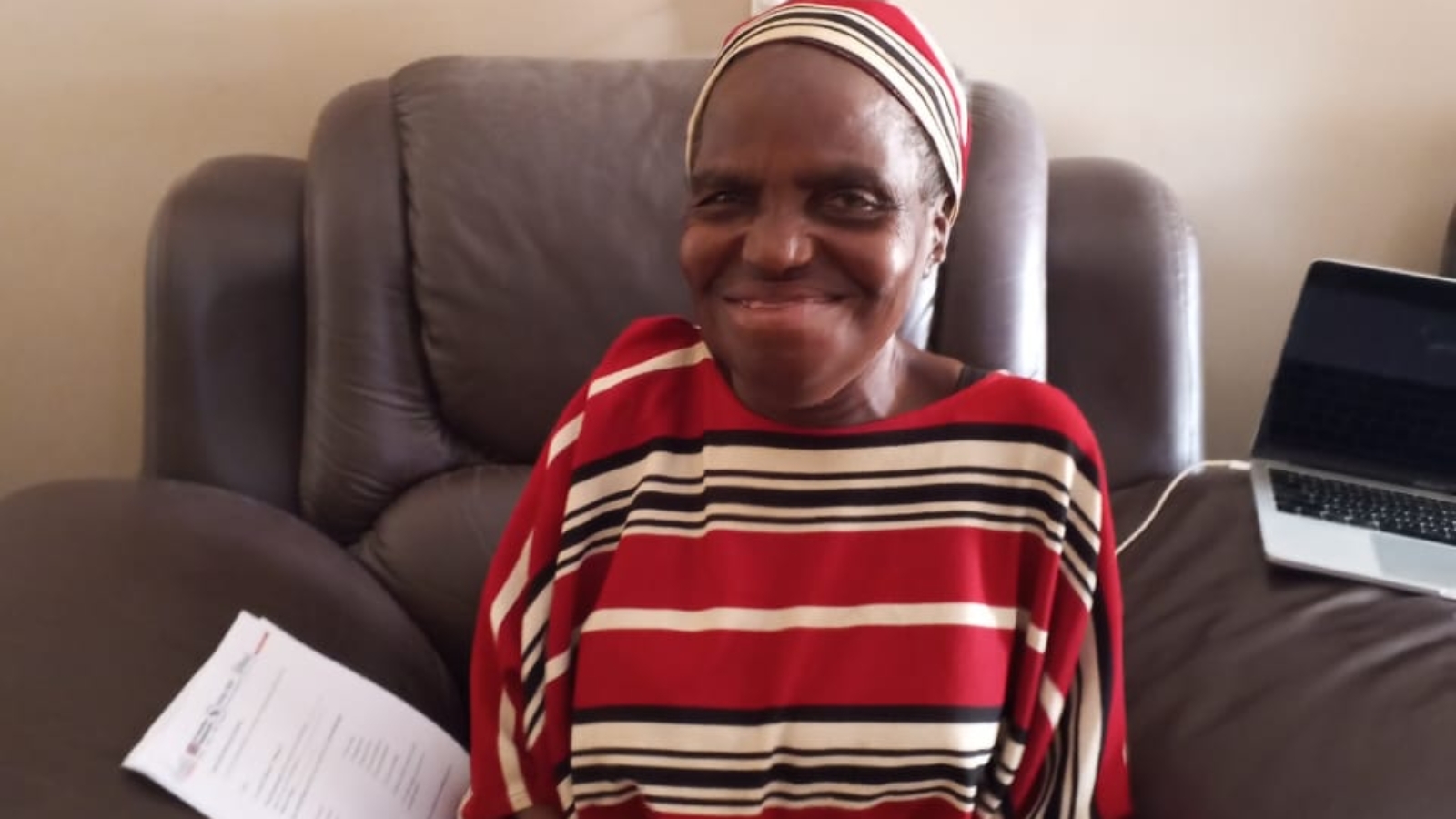
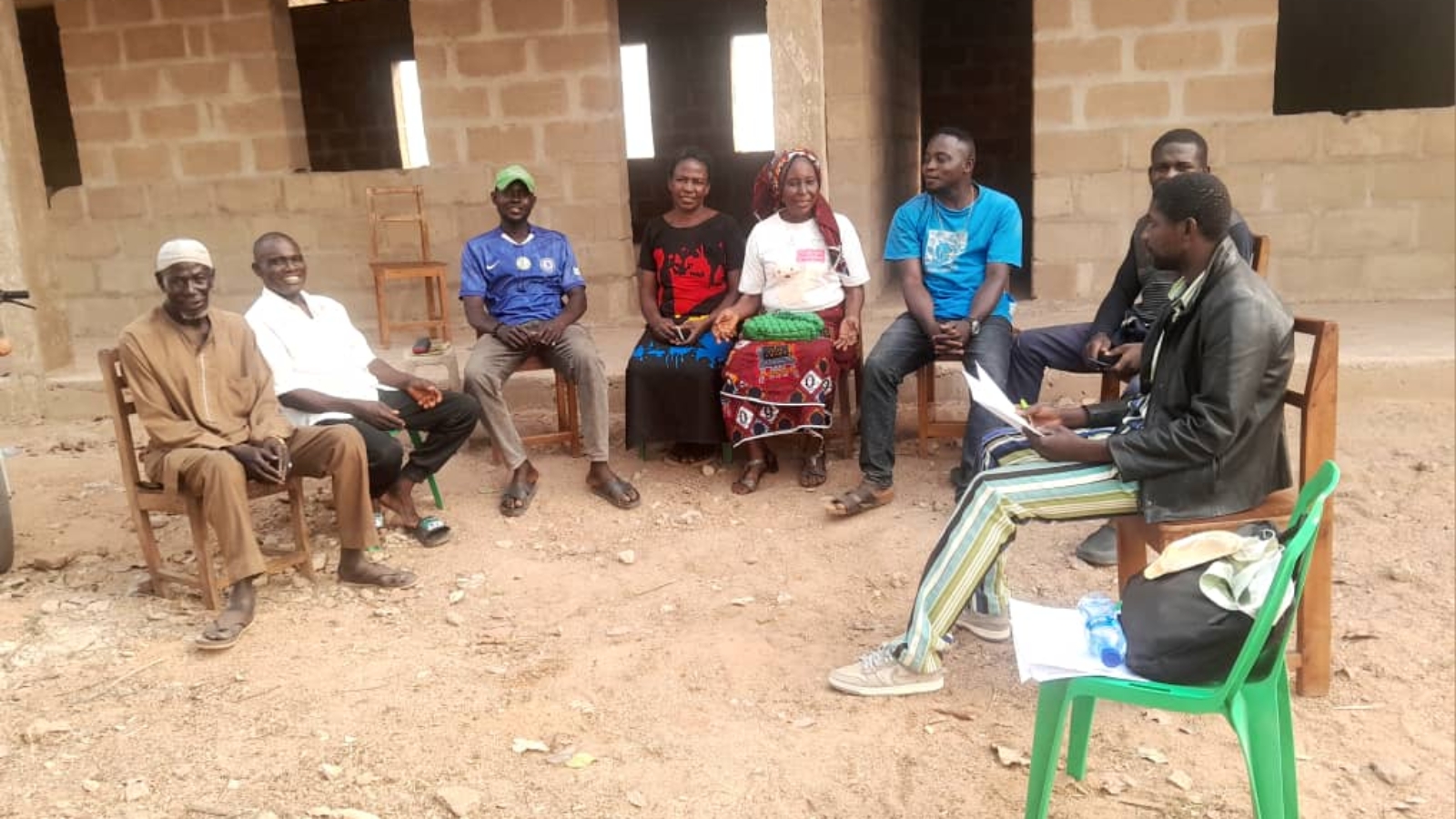
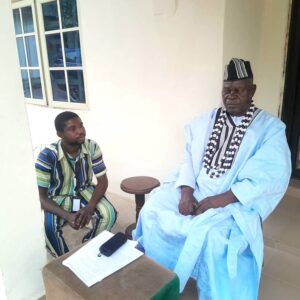 In Nigeria’s Middle Belt, the lines between a climate crisis and a conflict crisis are blurring. As fertile land and water become scarcer, competition intensifies, threatening the peace that communities in states like Benue and Plateau desperately need.
In Nigeria’s Middle Belt, the lines between a climate crisis and a conflict crisis are blurring. As fertile land and water become scarcer, competition intensifies, threatening the peace that communities in states like Benue and Plateau desperately need.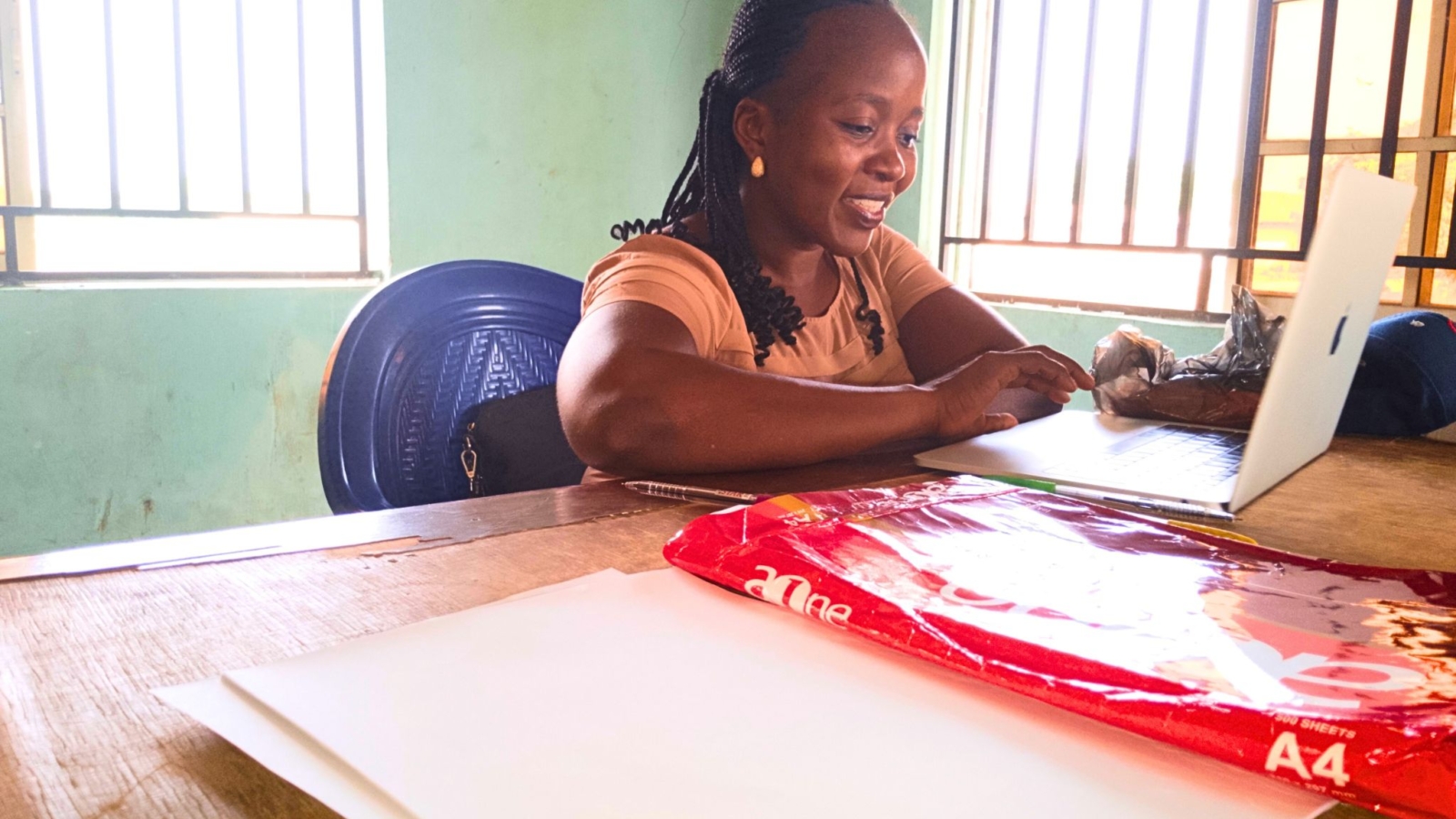
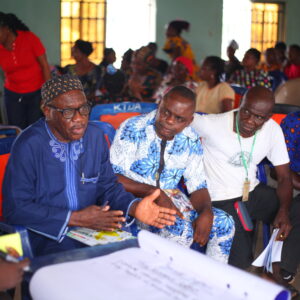 shared memories of how their fields and rivers once behaved. They described streams that no longer flow throughout the year and soils that respond differently to planting. Women spoke about the pressure these changes place on their homes, their farms and their ability to provide food. They explained how sudden dry spells, erosion and new pest outbreaks are stretching the resources of many households. Youth voiced concerns about what lies ahead for their generation. They spoke about extreme heat, water scarcity, flooding and land degradation that threaten both farming and the wider community. Although each group entered the room with different experiences, their concerns pointed to the same reality. Farming inputs are becoming too expensive. Water is harder to access. Road networks make it difficult to reach markets, and agricultural extension services are not consistent enough to support farmers as they adapt to new conditions. Yet, despite these shared difficulties, the atmosphere was hopeful rather than discouraged.
shared memories of how their fields and rivers once behaved. They described streams that no longer flow throughout the year and soils that respond differently to planting. Women spoke about the pressure these changes place on their homes, their farms and their ability to provide food. They explained how sudden dry spells, erosion and new pest outbreaks are stretching the resources of many households. Youth voiced concerns about what lies ahead for their generation. They spoke about extreme heat, water scarcity, flooding and land degradation that threaten both farming and the wider community. Although each group entered the room with different experiences, their concerns pointed to the same reality. Farming inputs are becoming too expensive. Water is harder to access. Road networks make it difficult to reach markets, and agricultural extension services are not consistent enough to support farmers as they adapt to new conditions. Yet, despite these shared difficulties, the atmosphere was hopeful rather than discouraged.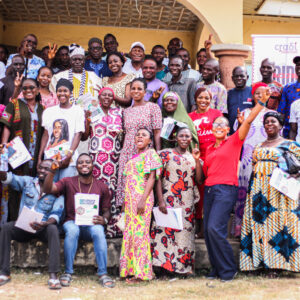 g, learning safer agricultural practices and mobilising other young people to protect the environment. These ideas flowed naturally because they were rooted in the community’s lived experience.
g, learning safer agricultural practices and mobilising other young people to protect the environment. These ideas flowed naturally because they were rooted in the community’s lived experience.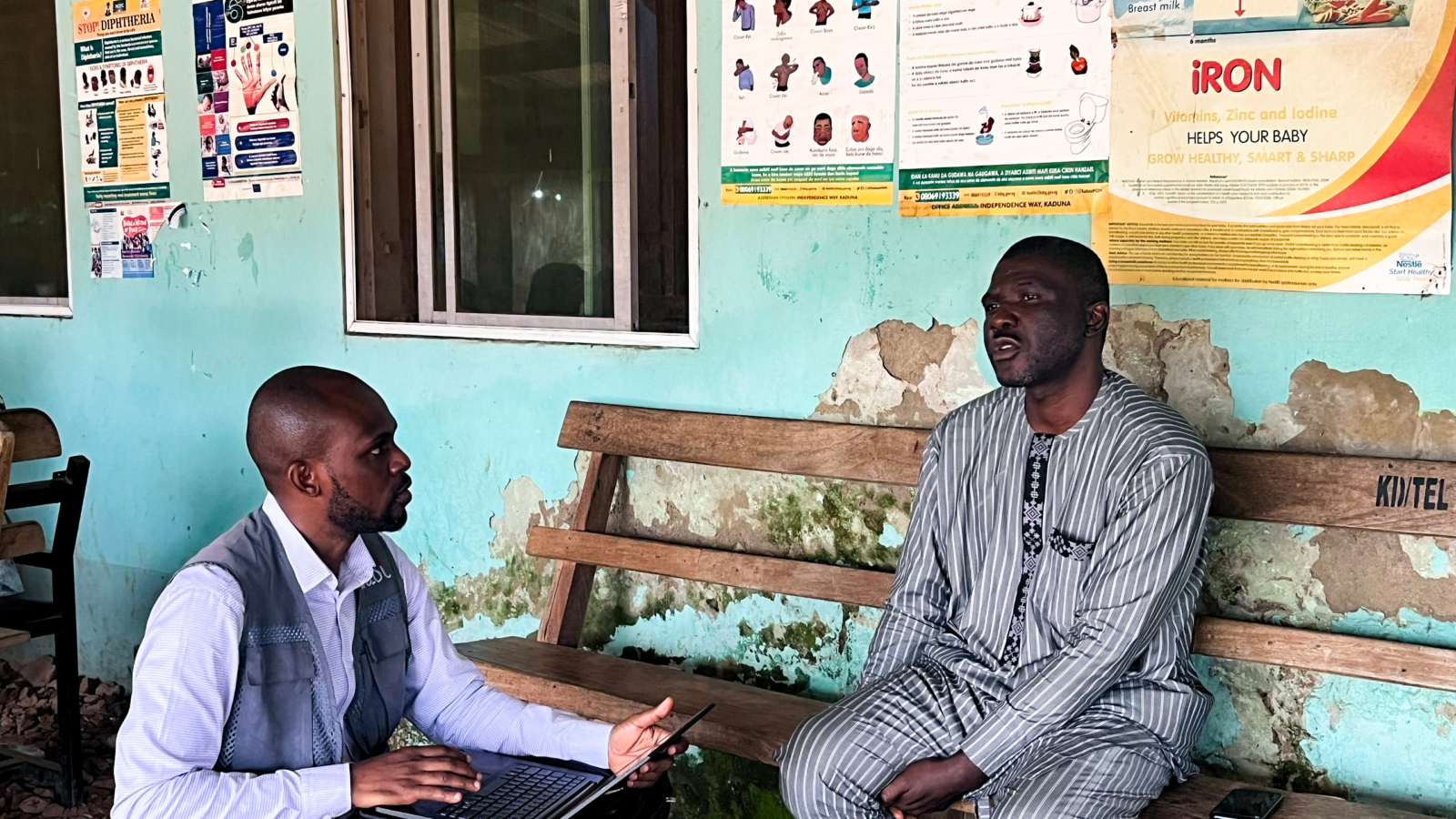
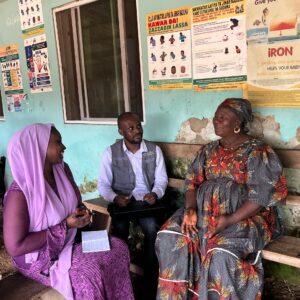 al and reproductive health outcomes. The project spanned across Lagos and Kaduna states, weaving together innovative strategies like mother-daughter TV cooking shows, youth-led theater performances, and even football-them
al and reproductive health outcomes. The project spanned across Lagos and Kaduna states, weaving together innovative strategies like mother-daughter TV cooking shows, youth-led theater performances, and even football-them











